http://haetarou.web.fc2.com/NewEnglish/Chap5/Chap5.html
英語勉強サイト
教育サイト(無料のようですが英語です)
経産省前 脱原発アルゴリズムデモ行進(4回目)
http://lise.me.sophia.ac.jp/kktm/Essay/kotonoha.htm
上智大学 伊藤 潔先生のサイトです勉強になりそうでう オススメです
http://quizlet.com/subject/term%3A%E5%90%8D%E8%A9%9E/
勉強サイト 問題を出してくれるみたいです
The Ultimate FREE PDF Search Engine
PDF FINDER

Lit Circle Notes: Introduction
pdf
Deadline 締め切り
You must finish this book and all related assignments by: Wednesday, June 6th.
終了する必要がありますこの本と課題に関係する全てを:6月6日(水曜日)までに
Literature Circle Notes
文学サークルの注意事項






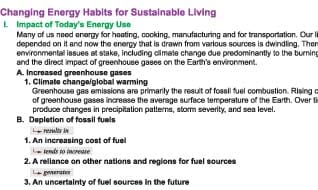






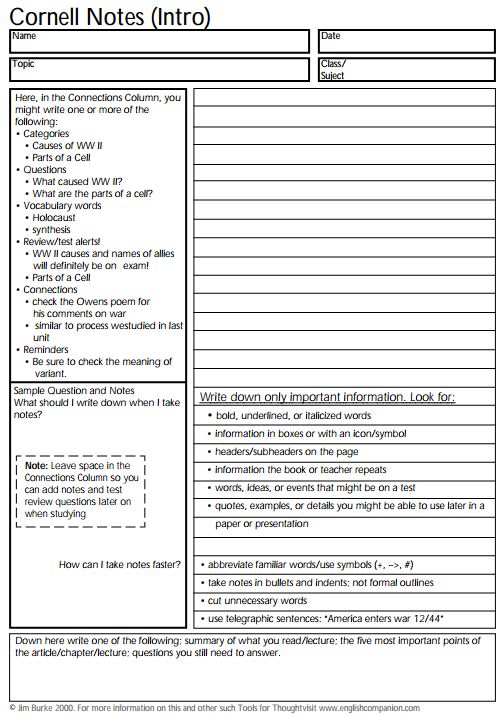

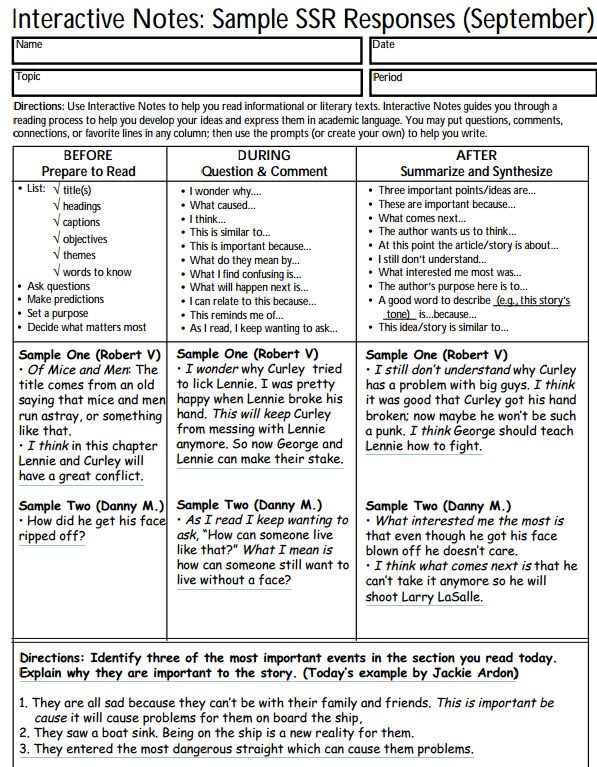



Jim Burke 2000. For more information on this and other such Tools for Thoughtvisit www.englishcompanion.com
Name
Topic
Date
Class/
Suject
Here, in the Connections Column, you
might write one or more of the
following:
• Categories
• Causes of WW II
• Parts of a Cell
• Questions
• What caused WW II?
• What are the parts of a cell?
• Vocabulary words
• Holocaust
• synthesis
• Review/test alerts!
• WW II causes and names of allies
will definitely be on exam!
• Parts of a Cell
• Connections
• check the Owens poem for
his comments on war
• similar to process westudied in last
unit
• Reminders
• Be sure to check the meaning of
variant.
Sample Question and Notes
What should I write down when I take
notes?
Write down only important information. Look for:
• bold, underlined, or italicized words
• information in boxes or with an icon/symbol
• headers/subheaders on the page
• information the book or teacher repeats
• words, ideas, or events that might be on a test
• quotes, examples, or details you might be able to use later in a
paper or presentation
Down here write one of the following; summary of what you read/lecture; the five most important points of
the article/chapter/lecture; questions you still need to answer.
• abbreviate familiar words/use symbols (+, -->, #)
• take notes in bullets and indents; not formal outlines
• cut unnecessary words
• use telegraphic sentences: “America enters war 12/44”
How can I take notes faster?
C



Name
Subject
Date
Period
Says/Does
Means/Implies
Directions: Find six quotes or examples that reveal important or different aspects of your subject. Then in the outer strand,
explain what they mean. Be sure, when possible, to include page citations for your quotes.
Making Inferences: Using the notes from your target, draw some conclusions about yoru subject. If you are writing about
a fictional character, for example, explain what kind of person they are. Be sure to use direct quotations and citation
information (e.g., I, ii, 35-40) when supporting your analysis.
Inference Notes
Subject
BEFORE
Prepare to Read
DURING
Question & Comment
AFTER
Summarize and Synthesize
• Ask questions
• Make predictions
• Set a purpose
• Decide what matters most
• I wonder why....
• What caused...
• I think...
• This is similar to...
• This is important because...
• What do they mean by...
• What I find confusing is...
• What will happen next is...
• I can relate to this because...
• This reminds me of...
• As I read, I keep wanting to ask...
• Three important points/ideas are...
• These are important because...
• What comes next...
• The author wants us to think...
• At this point the article/story is about...
• I still don’t understand...
• What interested me most was...
• The author’s purpose here is to...
• A good word to describe (e.g., this story’s
tone) is...because...
• This idea/story is similar to...
Directions: Use Interactive Notes to help you read informational or literary texts. Interactive Notes guides you through a
reading process to help you develop your ideas and express them in academic language. You may put questions, comments,
connections, or favorite lines in any column; then use the prompts (or create your own) to help you write.
© Jim Burke 2001. For more information on this and other such School Tools visit www.englishcompanion.com
Ö title(s)
Ö headings
Ö captions
Ö objectives
Ö themes
Ö words to know
• List:
Name
Topic
Date
Period
Interactive Notes: Sample SSR Responses (September)
Sample One (Robert V)
• Of Mice and Men: The
title comes from an old
saying that mice and men
run astray, or something
like that.
• I think in this chapter
Lennie and Curley will
have a great conflict.
Sample Two (Danny M.)
• How did he get his face
ripped off?
Sample One (Robert V)
• I wonder why Curley tried
to lick Lennie. I was pretty
happy when Lennie broke his
hand. This will keep Curley
from messing with Lennie
anymore. So now George and
Lennie can make their stake.
Sample Two (Danny M.)
• As I read I keep wanting to
ask, “How can someone live
like that?” What I mean is
how can someone still want to
live without a face?
Sample One (Robert V)
• I still don’t understand why Curley
has a problem with big guys. I think
it was good that Curley got his hand
broken; now maybe he won’t be such
a punk. I think George should teach
Lennie how to fight.
Sample Two (Danny M.)
• What interested me the most is
that even though he got his face
blown off he doesn’t care.
• I think what comes next is that he
can’t take it anymore so he will
shoot Larry LaSalle.
Directions: Identify three of the most important events in the section you read today.
Explain why they are important to the story. (Today’s example by Jackie Ardon)
1. They are all sad because they can’t be with their family and friends. This is important be
cause it will cause problems for them on board the ship,
2. They saw a boat sink. Being on the ship is a new reality for them.
3. They entered the most dangerous straight which can cause them problems.
Inference Notes
Name
Subject
Date
Period
Says
Means
Iago: “I follow him
to serve my turn
upon him.” I, i, 42.
Iago explains why he continues to serve
Othello, even when he hates him. His
motivation is to get revenge on Othello
for the imagined insults of being
overlooked for promotion and possibly
having had an affair with Iago’s wife
(I,iii, 370)
Directions: Find six quotes from or about Iago that reveal his character. Then in the outer strand, explain what they mean.
Be sure to include citation information (Act, Scene, line #)
Making Inferences : Using the notes from your target, explain what kind of person Iago is. Be sure to
use direct quotations and citation information (e.g., I, ii, 35-40) when supporting your analysis.
Making Inferences: Using the notes from your target, draw some conclusions about yoru subject. If you are writing about
a fictional character, for example, explain what kind of person they are. Be sure to use direct quotations and citation
information (e.g., I, ii, 35-40) when supporting your analysis.
Judge’s Notes
Introduction
During an interview about a major trial, the state supreme court judge said he took different kind of notes than he
usually did. In one column, he wrote down the questions he thought would help him make the right decision and
understand the issues in the case. In another column he jotted down personal observations and responses about the
defendants (Bill Gates and his legal team). In a third column he noted evidence or other details that would support
his final decision. Use this graphic organizer in the same way; these notes will prepare you to write a subsequent
paper in which your state your opinion and support your argument with evidence from your notes.
Questions Observations/Reactions Support/Evidence
Name
Topic
Date
Assigned Role
Lit Circle Notes Intro
Directions: In this column write the
following, depending on your role; be sure
to include page and paragraph numbers:
1. Discussion Director: develop questions about “big ideas” for the group to discuss; should be of compelling interest to all.
2. Illustrator: Draw an idea, event, or sequence to help them understand; use cartoons, graphs, webs, charts, maps.
3. Connector: Connect what you read to the world; use recent events, familiar people and places, “real life” events.
4. El Lector: Find sections you/your group want to hear read aloud; decide how to present or perform for group or class.
5. Word Watcher: Find words that the group must/should know: new, difficult, interesting, important, strange
6. Summarizer: Prepare a brief summary of today’s reading and discussion.
Down here you should review, retell, or reflect on what you read so far. (Use the back if necessary).
Directions: In this area, you write the following:
• Discussion Director: Questions
• Illustrator: Drawings, diagrams
• Connector: Connections
• El Lector: Passages/quotes to read aloud
• Word Watcher: Vocabulary words
• Summarizer: Key events, scenes, ideas.
Discussion Director: Response or answers to the questions you asked.
Illustrator: Explanation of the drawing or diagram you drew on the back.
Connector: Explanation and/or discussion of the connections you made.
El Lector: Reasons you picked these passages to read aloud.
Word Watcher: Definitions, sentences in which the word is used.
Summarizer: Description and discussion of the events, scenes, ideas.
Assignment for Tomorrow: page _______ – page_______
Assignment for Today: page _______ – page_______
Topic to be carried over to tomorrow:
http://www.englishcompanion.com/pdfDocs/litcirclepacket.pdf
Lit Circle Notes: Introduction
Group Members
1.
2.
3.
4.
5.
6.
Deadline
You must finish this book and all related assignments by: Wednesday, June 6th.
Assessment
You will be assessed according to:
`• the quality of your contributions to your lit circle discussion
`• the extent to which you keep up with your responsibilities to your group
`• the quality of your ideas on your Lit Circle Notes
`• the quality of your group’s discussion
Assignments
Your group must:
`• assign itself the reading for each night, pacing yourselves so you get it done by June 6th.
`• hold each member accountable for work, contributions to discussion, and respectful participation
`• rotate the assigned roles so that each night someone has a different responsibility; when you
complete one cycle through the group, begin again as you think appropriate, rotating jobs daily.
Schedule
Here is the schedule for each week:
`•Monday
` •LC (Lit Circles)
` •Groups meet
`•Tuesday
` •LC (Lit Circles)
` •Read and roles
`•Wednesday
` •LC (Lit Circles)
` •Groups meet
`•Thursday
` •LC (Lit Circles)
` •Read and Roles
`•Friday
` •LC (Lit Circles)
` •Groups meet
Source: I must credit Harvey Daniels with the idea of Lit Circles. Though I have taken small liberties
with the ideas and roles, and created my own Lit Circle Notes pages, the core ideas and
technique are his, not mine. To learn more, read Harvey Daniels’s book Literature Circles: Voice
and Choice in the Student-Centered Classroom (Stenhouse1994)
Lit Circle Notes: Overview of the Roles
Illuminator: You find passages your group
would like to/should hear read aloud.
These passages should be memorable,
interesting, puzzling, funny, or important.
Your notes should include the quotations
but also why you chose them, and what
you want to say about them. You can either
read the passage aloud yourself or ask
members of your group to read roles.
Sample Questions
What were you thinking about as you read?
What did the text make you think about?
What do you think this text/passage was about?
How might other people (of different backgrounds) think about this text/passage?
What one question would you ask the writer if you got the chance? Why?
What are the most important ideas/moments in this text/section?
What do you think will happen next---and why?
What was the most important change in this section? How and why did it happen?
Illustrator: Your role is to draw what you read.
This might mean drawing a scene as a cartoonlike sequence, or an important scene so readers
can better understand the action. You can draw
maps or organizational trees to show how one
person, place, or event relates to the others.
Use the notes area to explain how your drawing
relates to the text. Label your drawings so we
know who the characters are. Make your
drawing on the back of this page or on a
separate sheet of paper.
Sample Questions
Ask members of your group, “What do you think this picture means?”
Why did you choose this scene to illustrate?
How does this drawing relate to the story?
Why did you choose to draw it the way you did?
What do we see---i.e., who and/or what is in this picture?
What, if anything, did drawing it help you see that you had not noticed before?
What did this quotation/passage make you think about when you read it?
What are you trying to accomplish through this drawing?
Connector: Your job is to connect what
you are reading with what you are studying
or with the world outside of school. You
can connect the story to events in you own
life, news events, political events, or
popular trends. Another important source
of connections is books you’ve already
read. The connections should be meaningful
to you and those in your group.
Sample Questions
What connections can you make to your own life?
What other places or people could you compare this story to?
What other books or stories might you compare to this one?
What other characters or authors might you compare to this one?
What is the most interesting or important connection that comes to mind?
How does this section relate to those that came before it?
Word Watcher: While reading the
assigned section, you watch out for words
worth knowing. These words might be
interesting, new, important, or used in
unusual ways. It is important to indicate the
specific location of the words so the group
can discuss these words in context.
Sample Questions
Which words are used frequently?
Which words are used in unusual ways?
What words seem to have special meaning to the characters or author?
What new words do you find in this section?
What part of speech is this word?
What is the connotative meaning of this word?
What is the denotative meaning of this word?
Discussion Director: Your role demands
that you identify the important aspects of
your assigned text, and develop questions
your group will want to discuss. Focus on
the major themes or “big ideas” in the text
and your reaction to those ideas. What
interests you will most likely interest those
in your group. You are also responsible for
facilitating your group’s discussion.
Sample Questions
What were you thinking about as you read?
What did the text make you think about?
What do you think this text/passage was about?
How might other people (of different backgrounds) think about this text/passage?
What one question would you ask the writer if you got the chance? Why?
What are the most important ideas/moments in this text/section?
What do you think will happen next---and why?
What was the most important change in this section? How and why did it happen?
Summarizer: Prepare a brief summary of
the day’s reading. Use the questions to the
right to help you decide what to include. In
some cases, you might ask yourself what
details, characters, or events are so
important that they would be included on
an exam. If it helps you to organize the
information, consider
Summarizer: Prepare a brief summary of
the day’s reading. Use the questions to the
right to help you decide what to include. In
some cases, you might ask yourself what
details, characters, or events are so
important that they would be included on
an exam. If it helps you to organize the
information, consider making a numbered
list or a timeline.
Sample Questions
What are the most important events in the section you read?
What makes them so important?
What effect to these events have on the plot or the other characters?
What changes---in plot, character, or tone---did you notice when you read?
What questions might appear on an exam about this section you read?
What might be a good essay topic for this section of the story?
Lit Circle Notes: Examplars and Reminders
Down here you should review, retell, or reflect on what you read so far. (Use the back if necessary).
Illuminator
“I was told by my father that I had no
free will, no control whatsoever over
my destiny, that each minute detail
about my life, my existence---before
now and to come---were all contained
in a big scroll made of my life, over
which my ancestors pondered day and
night as they alternately tossed random
situations into my life...” (p. 126, ¶4,
from Kaffir Boy)
Response
This quote is important because it makes you think about your future.
When I was reading this, I stopped for a second and thought about
my destiny. There is no way you can avoid the future. Every second
counts. In a few seconds you can make a wrong decision. Sooner or
later those seconds turn into minutes, which turn into hours that turn
into days... Your destiny is something you come up with by making
those decisions. What if someone just scrambled a few obstacles
together and then put them in our destiny book? We must learn to
make correct choices. They might just change some obstacles in the
destiny book. We might be able to overcome those challanges that were
put in the future. (Jessica Perez about Kaffir Boy)
Connector
What other places can you compare
this to?
Response
This passage reminds me of Germany during the Holocaust. The
police in South Africa are just like the Nazis banging on the
Jewish doors and looking for the Jewish star or other required
identification papers; this is how they use the blacks’ passbooks in
South Africa. (Jen Lescher about Kaffir Boy)
Summarizer
What are the most important events?
Prepare for a Test: Make Your Own
Mr. Burke/Fall 2001
Overview What is on a big test is rarely a surprise if you take time to think about it.
Sure the teacher might throw in a few curveballs, sneak in a few questions
you had not expected, but most of the time what they ask will be no
surprise if you are prepared. The following steps will prepare you for any
a quiz or exam in any class. This exercise get you ready for your exam, but
will also show you how to be an effective student. One last point: Though
this seems like a long and complicated process, you soon begin to read
and listen differently, identifying those events and ideas likely to be on
the test as you read.
Step One Gather Essential Information. Ask the teacher what will be on the test
and whether it is permissible to use notes, books, or other tools (e.g.,
calculator, dictionaries, computers) on the test. Here are some ways you
might ask such questions if your teacher does not offer the information up
front:
· “Could you please tell us what to expect on the test so we will
know how to prepare?”
· “Will this test cover all that we have studied this whole semester,
or just the units from this quarter?”
· “Would you be willing to allow us to prepare a page of notes or
perhaps use our book when we take the exam?”
· “Could you tell us how the test breaks down: Are there multiple
choice questions? If so, how many? Short answer? An essay
question? Any matching?”
· “Will you be offering any study sessions or additional materials
(e.g., study guides, old tests, outlines, suggestions) prior to the
exam in order to help us prepare?”
· “When preparing for the exam, should we focus on anything in
particular?”
Step Two Assemble Available Resources. Prepare to create your own exam. To do
this you will need the following materials:
· all your notes, chapter study guides, and old tests and quizzes
· the textbook or other primary documents/texts on which the exam
will be based
· study guides, word lists, or other preparation materials your
teacher has given you to help you prepare for this specific exam
· your answers to the questions in step one: i.e., will you be able to
use notes in class? If so, that might determine what you should
study and the format of your notes
Probability Continuum
When evaluating the likelihood of a question or information appearing on the exam, consider
the following probability chart to help you decide:
0% 25% 50% 75% 100%
Impossible ‡ Unlikely ‡ Possible ‡ Probable ‡ Certain
Why is this important?
Response
He was being rude to the “shit men” and they made him get in
a bucket of night soil. Also they had to move out of their shack and
into another one and Alexandra will soon be torn down. He
almost died from the braziere being inside.
It taught him not to make fun of people, especially for their
jobs because they don’t want to do what they are doing. Moving
into another shack is important because it shows how poor they are
and how they do whatever the whites say, including picking up
their lives and leaving. They do what they say because they fear
being arrested. (Jen Lescher about Kaffir Boy)
Discussion Director
Did they depend on witchcraft and
vodoo so they don’t have to take
ownership of bad things that happened?
Response
Yes, they depended very much on vodoo and witchcraft. They seemed
to blame everything bad on the witches and evil ancestral spirits.
They blamed no money, not being able to find a job, the police. They
were all some sort of evil spirit. It was never the fault of the living
person, but always the doing of a nonliving spirit. [They believed
this because... I also noticed that when x would happen, they
believed...] (Jennifer Edl, about Kaffir Boy)
Johannes goes to the tribal land at this point in the book. He goes with his father and finds his witchdoctor.
His family leaves to another part of the city because Alexandra got bulldozed. They move to another place
where they are in poverty. Johannes turns to begging. Mother gets upset and talks with Johannes. He is now
paranoid about police raids and witches. (Jessica Perez, about Kaffir Boy)
Lit Circle Notes: Examplars and Reminders
Down here you should review, retell, or reflect on what you read so far. (Use the back if necessary).
Illuminator
“I was told by my father that I had no
free will, no control whatsoever over
my destiny, that each minute detail
about my life, my existence---before
now and to come---were all contained
in a big scroll made of my life, over
which my ancestors pondered day and
night as they alternately tossed random
situations into my life...” (p. 126, ¶4,
from Kaffir Boy)
Response
This quote is important because it makes you think about your future.
When I was reading this, I stopped for a second and thought about
my destiny. There is no way you can avoid the future. Every second
counts. In a few seconds you can make a wrong decision. Sooner or
later those seconds turn into minutes, which turn into hours that turn
into days... Your destiny is something you come up with by making
those decisions. What if someone just scrambled a few obstacles
together and then put them in our destiny book? We must learn to
make correct choices. They might just change some obstacles in the
destiny book. We might be able to overcome those challanges that were
put in the future. (Jessica Perez about Kaffir Boy)
Connector
What other places can you compare
this to?
Response
This passage reminds me of Germany during the Holocaust. The
police in South Africa are just like the Nazis banging on the
Jewish doors and looking for the Jewish star or other required
identification papers; this is how they use the blacks’ passbooks in
South Africa. (Jen Lescher about Kaffir Boy)
Summarizer
What are the most important events?
Why is this important?
Response
He was being rude to the “shit men” and they made him get in
a bucket of night soil. Also they had to move out of their shack and
into another one and Alexandra will soon be torn down. He
almost died from the braziere being inside.
It taught him not to make fun of people, especially for their
jobs because they don’t want to do what they are doing. Moving
into another shack is important because it shows how poor they are
and how they do whatever the whites say, including picking up
their lives and leaving. They do what they say because they fear
being arrested. (Jen Lescher about Kaffir Boy)
Discussion Director
Did they depend on witchcraft and
vodoo so they don’t have to take
ownership of bad things that happened?
Response
Yes, they depended very much on vodoo and witchcraft. They seemed
to blame everything bad on the witches and evil ancestral spirits.
They blamed no money, not being able to find a job, the police. They
were all some sort of evil spirit. It was never the fault of the living
person, but always the doing of a nonliving spirit. [They believed
this because... I also noticed that when x would happen, they
believed...] (Jennifer Edl, about Kaffir Boy)
Johannes goes to the tribal land at this point in the book. He goes with his father and finds his witchdoctor.
His family leaves to another part of the city because Alexandra got bulldozed. They move to another place
where they are in poverty. Johannes turns to begging. Mother gets upset and talks with Johannes. He is now
paranoid about police raids and witches. (Jessica Perez, about Kaffir Boy)
Overview: Few people are developing their ideas; few are following the Cornell format; few are doing what
I would call complete work. Nearly all are running great discussions. Use these exemplars to help you
improve your notes this week. It’s the end of the year: I expect daily evidence of all you’ve learned to do.
.
Word Watcher: While reading the
assigned section, you watch out for words
worth knowing. These words might be
interesting, new, important, or used in
unusual ways. It is important to indicate the
specific location of the words so the group
can discuss these words in context.
Sample Questions
Which words are used frequently?
Which words are used in unusual ways?
What words seem to have special meaning to the characters or author?
What new words do you find in this section?
What part of speech is this word?
What is the connotative meaning of this word?
What is the denotative meaning of this word?
Assignment for Tomorrow: page _______ – page_______
Assignment for Today: page _______ – page_______
Topic to be carried over to tomorrow:
In this column, write the word, and the
page and paragraph numbers. Write the
definition and any explanation about
why you chose the words in the notes
section to the right. >>>)
http://www.ocn.ne.jp/translation/
OCN翻訳サイト
英語勉強サイト
教育サイト(無料のようですが英語です)
経産省前 脱原発アルゴリズムデモ行進(4回目)
http://lise.me.sophia.ac.jp/kktm/Essay/kotonoha.htm
上智大学 伊藤 潔先生のサイトです勉強になりそうでう オススメです
http://quizlet.com/subject/term%3A%E5%90%8D%E8%A9%9E/
勉強サイト 問題を出してくれるみたいです
The Ultimate FREE PDF Search Engine
PDF FINDER

Lit Circle Notes: Introduction
Deadline 締め切り
You must finish this book and all related assignments by: Wednesday, June 6th.
終了する必要がありますこの本と課題に関係する全てを:6月6日(水曜日)までに
Literature Circle Notes
文学サークルの注意事項



















Jim Burke 2000. For more information on this and other such Tools for Thoughtvisit www.englishcompanion.com
Name
Topic
Date
Class/
Suject
Here, in the Connections Column, you
might write one or more of the
following:
• Categories
• Causes of WW II
• Parts of a Cell
• Questions
• What caused WW II?
• What are the parts of a cell?
• Vocabulary words
• Holocaust
• synthesis
• Review/test alerts!
• WW II causes and names of allies
will definitely be on exam!
• Parts of a Cell
• Connections
• check the Owens poem for
his comments on war
• similar to process westudied in last
unit
• Reminders
• Be sure to check the meaning of
variant.
Sample Question and Notes
What should I write down when I take
notes?
Write down only important information. Look for:
• bold, underlined, or italicized words
• information in boxes or with an icon/symbol
• headers/subheaders on the page
• information the book or teacher repeats
• words, ideas, or events that might be on a test
• quotes, examples, or details you might be able to use later in a
paper or presentation
Down here write one of the following; summary of what you read/lecture; the five most important points of
the article/chapter/lecture; questions you still need to answer.
• abbreviate familiar words/use symbols (+, -->, #)
• take notes in bullets and indents; not formal outlines
• cut unnecessary words
• use telegraphic sentences: “America enters war 12/44”
How can I take notes faster?
C



Name
Subject
Date
Period
Says/Does
Means/Implies
Directions: Find six quotes or examples that reveal important or different aspects of your subject. Then in the outer strand,
explain what they mean. Be sure, when possible, to include page citations for your quotes.
Making Inferences: Using the notes from your target, draw some conclusions about yoru subject. If you are writing about
a fictional character, for example, explain what kind of person they are. Be sure to use direct quotations and citation
information (e.g., I, ii, 35-40) when supporting your analysis.
Inference Notes
Subject
BEFORE
Prepare to Read
DURING
Question & Comment
AFTER
Summarize and Synthesize
• Ask questions
• Make predictions
• Set a purpose
• Decide what matters most
• I wonder why....
• What caused...
• I think...
• This is similar to...
• This is important because...
• What do they mean by...
• What I find confusing is...
• What will happen next is...
• I can relate to this because...
• This reminds me of...
• As I read, I keep wanting to ask...
• Three important points/ideas are...
• These are important because...
• What comes next...
• The author wants us to think...
• At this point the article/story is about...
• I still don’t understand...
• What interested me most was...
• The author’s purpose here is to...
• A good word to describe (e.g., this story’s
tone) is...because...
• This idea/story is similar to...
Directions: Use Interactive Notes to help you read informational or literary texts. Interactive Notes guides you through a
reading process to help you develop your ideas and express them in academic language. You may put questions, comments,
connections, or favorite lines in any column; then use the prompts (or create your own) to help you write.
© Jim Burke 2001. For more information on this and other such School Tools visit www.englishcompanion.com
Ö title(s)
Ö headings
Ö captions
Ö objectives
Ö themes
Ö words to know
• List:
Name
Topic
Date
Period
Interactive Notes: Sample SSR Responses (September)
Sample One (Robert V)
• Of Mice and Men: The
title comes from an old
saying that mice and men
run astray, or something
like that.
• I think in this chapter
Lennie and Curley will
have a great conflict.
Sample Two (Danny M.)
• How did he get his face
ripped off?
Sample One (Robert V)
• I wonder why Curley tried
to lick Lennie. I was pretty
happy when Lennie broke his
hand. This will keep Curley
from messing with Lennie
anymore. So now George and
Lennie can make their stake.
Sample Two (Danny M.)
• As I read I keep wanting to
ask, “How can someone live
like that?” What I mean is
how can someone still want to
live without a face?
Sample One (Robert V)
• I still don’t understand why Curley
has a problem with big guys. I think
it was good that Curley got his hand
broken; now maybe he won’t be such
a punk. I think George should teach
Lennie how to fight.
Sample Two (Danny M.)
• What interested me the most is
that even though he got his face
blown off he doesn’t care.
• I think what comes next is that he
can’t take it anymore so he will
shoot Larry LaSalle.
Directions: Identify three of the most important events in the section you read today.
Explain why they are important to the story. (Today’s example by Jackie Ardon)
1. They are all sad because they can’t be with their family and friends. This is important be
cause it will cause problems for them on board the ship,
2. They saw a boat sink. Being on the ship is a new reality for them.
3. They entered the most dangerous straight which can cause them problems.
Inference Notes
Name
Subject
Date
Period
Says
Means
Iago: “I follow him
to serve my turn
upon him.” I, i, 42.
Iago explains why he continues to serve
Othello, even when he hates him. His
motivation is to get revenge on Othello
for the imagined insults of being
overlooked for promotion and possibly
having had an affair with Iago’s wife
(I,iii, 370)
Directions: Find six quotes from or about Iago that reveal his character. Then in the outer strand, explain what they mean.
Be sure to include citation information (Act, Scene, line #)
Making Inferences : Using the notes from your target, explain what kind of person Iago is. Be sure to
use direct quotations and citation information (e.g., I, ii, 35-40) when supporting your analysis.
Making Inferences: Using the notes from your target, draw some conclusions about yoru subject. If you are writing about
a fictional character, for example, explain what kind of person they are. Be sure to use direct quotations and citation
information (e.g., I, ii, 35-40) when supporting your analysis.
Judge’s Notes
Introduction
During an interview about a major trial, the state supreme court judge said he took different kind of notes than he
usually did. In one column, he wrote down the questions he thought would help him make the right decision and
understand the issues in the case. In another column he jotted down personal observations and responses about the
defendants (Bill Gates and his legal team). In a third column he noted evidence or other details that would support
his final decision. Use this graphic organizer in the same way; these notes will prepare you to write a subsequent
paper in which your state your opinion and support your argument with evidence from your notes.
Questions Observations/Reactions Support/Evidence
Name
Topic
Date
Assigned Role
Lit Circle Notes Intro
Directions: In this column write the
following, depending on your role; be sure
to include page and paragraph numbers:
1. Discussion Director: develop questions about “big ideas” for the group to discuss; should be of compelling interest to all.
2. Illustrator: Draw an idea, event, or sequence to help them understand; use cartoons, graphs, webs, charts, maps.
3. Connector: Connect what you read to the world; use recent events, familiar people and places, “real life” events.
4. El Lector: Find sections you/your group want to hear read aloud; decide how to present or perform for group or class.
5. Word Watcher: Find words that the group must/should know: new, difficult, interesting, important, strange
6. Summarizer: Prepare a brief summary of today’s reading and discussion.
Down here you should review, retell, or reflect on what you read so far. (Use the back if necessary).
Directions: In this area, you write the following:
• Discussion Director: Questions
• Illustrator: Drawings, diagrams
• Connector: Connections
• El Lector: Passages/quotes to read aloud
• Word Watcher: Vocabulary words
• Summarizer: Key events, scenes, ideas.
Discussion Director: Response or answers to the questions you asked.
Illustrator: Explanation of the drawing or diagram you drew on the back.
Connector: Explanation and/or discussion of the connections you made.
El Lector: Reasons you picked these passages to read aloud.
Word Watcher: Definitions, sentences in which the word is used.
Summarizer: Description and discussion of the events, scenes, ideas.
Assignment for Tomorrow: page _______ – page_______
Assignment for Today: page _______ – page_______
Topic to be carried over to tomorrow:
http://www.englishcompanion.com/pdfDocs/litcirclepacket.pdf
Lit Circle Notes: Introduction
Group Members
1.
2.
3.
4.
5.
6.
Deadline
You must finish this book and all related assignments by: Wednesday, June 6th.
Assessment
You will be assessed according to:
`• the quality of your contributions to your lit circle discussion
`• the extent to which you keep up with your responsibilities to your group
`• the quality of your ideas on your Lit Circle Notes
`• the quality of your group’s discussion
Assignments
Your group must:
`• assign itself the reading for each night, pacing yourselves so you get it done by June 6th.
`• hold each member accountable for work, contributions to discussion, and respectful participation
`• rotate the assigned roles so that each night someone has a different responsibility; when you
complete one cycle through the group, begin again as you think appropriate, rotating jobs daily.
Schedule
Here is the schedule for each week:
`•Monday
` •LC (Lit Circles)
` •Groups meet
`•Tuesday
` •LC (Lit Circles)
` •Read and roles
`•Wednesday
` •LC (Lit Circles)
` •Groups meet
`•Thursday
` •LC (Lit Circles)
` •Read and Roles
`•Friday
` •LC (Lit Circles)
` •Groups meet
Source: I must credit Harvey Daniels with the idea of Lit Circles. Though I have taken small liberties
with the ideas and roles, and created my own Lit Circle Notes pages, the core ideas and
technique are his, not mine. To learn more, read Harvey Daniels’s book Literature Circles: Voice
and Choice in the Student-Centered Classroom (Stenhouse1994)
Lit Circle Notes: Overview of the Roles
Illuminator: You find passages your group
would like to/should hear read aloud.
These passages should be memorable,
interesting, puzzling, funny, or important.
Your notes should include the quotations
but also why you chose them, and what
you want to say about them. You can either
read the passage aloud yourself or ask
members of your group to read roles.
Sample Questions
What were you thinking about as you read?
What did the text make you think about?
What do you think this text/passage was about?
How might other people (of different backgrounds) think about this text/passage?
What one question would you ask the writer if you got the chance? Why?
What are the most important ideas/moments in this text/section?
What do you think will happen next---and why?
What was the most important change in this section? How and why did it happen?
Illustrator: Your role is to draw what you read.
This might mean drawing a scene as a cartoonlike sequence, or an important scene so readers
can better understand the action. You can draw
maps or organizational trees to show how one
person, place, or event relates to the others.
Use the notes area to explain how your drawing
relates to the text. Label your drawings so we
know who the characters are. Make your
drawing on the back of this page or on a
separate sheet of paper.
Sample Questions
Ask members of your group, “What do you think this picture means?”
Why did you choose this scene to illustrate?
How does this drawing relate to the story?
Why did you choose to draw it the way you did?
What do we see---i.e., who and/or what is in this picture?
What, if anything, did drawing it help you see that you had not noticed before?
What did this quotation/passage make you think about when you read it?
What are you trying to accomplish through this drawing?
Connector: Your job is to connect what
you are reading with what you are studying
or with the world outside of school. You
can connect the story to events in you own
life, news events, political events, or
popular trends. Another important source
of connections is books you’ve already
read. The connections should be meaningful
to you and those in your group.
Sample Questions
What connections can you make to your own life?
What other places or people could you compare this story to?
What other books or stories might you compare to this one?
What other characters or authors might you compare to this one?
What is the most interesting or important connection that comes to mind?
How does this section relate to those that came before it?
Word Watcher: While reading the
assigned section, you watch out for words
worth knowing. These words might be
interesting, new, important, or used in
unusual ways. It is important to indicate the
specific location of the words so the group
can discuss these words in context.
Sample Questions
Which words are used frequently?
Which words are used in unusual ways?
What words seem to have special meaning to the characters or author?
What new words do you find in this section?
What part of speech is this word?
What is the connotative meaning of this word?
What is the denotative meaning of this word?
Discussion Director: Your role demands
that you identify the important aspects of
your assigned text, and develop questions
your group will want to discuss. Focus on
the major themes or “big ideas” in the text
and your reaction to those ideas. What
interests you will most likely interest those
in your group. You are also responsible for
facilitating your group’s discussion.
Sample Questions
What were you thinking about as you read?
What did the text make you think about?
What do you think this text/passage was about?
How might other people (of different backgrounds) think about this text/passage?
What one question would you ask the writer if you got the chance? Why?
What are the most important ideas/moments in this text/section?
What do you think will happen next---and why?
What was the most important change in this section? How and why did it happen?
Summarizer: Prepare a brief summary of
the day’s reading. Use the questions to the
right to help you decide what to include. In
some cases, you might ask yourself what
details, characters, or events are so
important that they would be included on
an exam. If it helps you to organize the
information, consider
Summarizer: Prepare a brief summary of
the day’s reading. Use the questions to the
right to help you decide what to include. In
some cases, you might ask yourself what
details, characters, or events are so
important that they would be included on
an exam. If it helps you to organize the
information, consider making a numbered
list or a timeline.
Sample Questions
What are the most important events in the section you read?
What makes them so important?
What effect to these events have on the plot or the other characters?
What changes---in plot, character, or tone---did you notice when you read?
What questions might appear on an exam about this section you read?
What might be a good essay topic for this section of the story?
Lit Circle Notes: Examplars and Reminders
Down here you should review, retell, or reflect on what you read so far. (Use the back if necessary).
Illuminator
“I was told by my father that I had no
free will, no control whatsoever over
my destiny, that each minute detail
about my life, my existence---before
now and to come---were all contained
in a big scroll made of my life, over
which my ancestors pondered day and
night as they alternately tossed random
situations into my life...” (p. 126, ¶4,
from Kaffir Boy)
Response
This quote is important because it makes you think about your future.
When I was reading this, I stopped for a second and thought about
my destiny. There is no way you can avoid the future. Every second
counts. In a few seconds you can make a wrong decision. Sooner or
later those seconds turn into minutes, which turn into hours that turn
into days... Your destiny is something you come up with by making
those decisions. What if someone just scrambled a few obstacles
together and then put them in our destiny book? We must learn to
make correct choices. They might just change some obstacles in the
destiny book. We might be able to overcome those challanges that were
put in the future. (Jessica Perez about Kaffir Boy)
Connector
What other places can you compare
this to?
Response
This passage reminds me of Germany during the Holocaust. The
police in South Africa are just like the Nazis banging on the
Jewish doors and looking for the Jewish star or other required
identification papers; this is how they use the blacks’ passbooks in
South Africa. (Jen Lescher about Kaffir Boy)
Summarizer
What are the most important events?
Prepare for a Test: Make Your Own
Mr. Burke/Fall 2001
Overview What is on a big test is rarely a surprise if you take time to think about it.
Sure the teacher might throw in a few curveballs, sneak in a few questions
you had not expected, but most of the time what they ask will be no
surprise if you are prepared. The following steps will prepare you for any
a quiz or exam in any class. This exercise get you ready for your exam, but
will also show you how to be an effective student. One last point: Though
this seems like a long and complicated process, you soon begin to read
and listen differently, identifying those events and ideas likely to be on
the test as you read.
Step One Gather Essential Information. Ask the teacher what will be on the test
and whether it is permissible to use notes, books, or other tools (e.g.,
calculator, dictionaries, computers) on the test. Here are some ways you
might ask such questions if your teacher does not offer the information up
front:
· “Could you please tell us what to expect on the test so we will
know how to prepare?”
· “Will this test cover all that we have studied this whole semester,
or just the units from this quarter?”
· “Would you be willing to allow us to prepare a page of notes or
perhaps use our book when we take the exam?”
· “Could you tell us how the test breaks down: Are there multiple
choice questions? If so, how many? Short answer? An essay
question? Any matching?”
· “Will you be offering any study sessions or additional materials
(e.g., study guides, old tests, outlines, suggestions) prior to the
exam in order to help us prepare?”
· “When preparing for the exam, should we focus on anything in
particular?”
Step Two Assemble Available Resources. Prepare to create your own exam. To do
this you will need the following materials:
· all your notes, chapter study guides, and old tests and quizzes
· the textbook or other primary documents/texts on which the exam
will be based
· study guides, word lists, or other preparation materials your
teacher has given you to help you prepare for this specific exam
· your answers to the questions in step one: i.e., will you be able to
use notes in class? If so, that might determine what you should
study and the format of your notes
Probability Continuum
When evaluating the likelihood of a question or information appearing on the exam, consider
the following probability chart to help you decide:
0% 25% 50% 75% 100%
Impossible ‡ Unlikely ‡ Possible ‡ Probable ‡ Certain
Why is this important?
Response
He was being rude to the “shit men” and they made him get in
a bucket of night soil. Also they had to move out of their shack and
into another one and Alexandra will soon be torn down. He
almost died from the braziere being inside.
It taught him not to make fun of people, especially for their
jobs because they don’t want to do what they are doing. Moving
into another shack is important because it shows how poor they are
and how they do whatever the whites say, including picking up
their lives and leaving. They do what they say because they fear
being arrested. (Jen Lescher about Kaffir Boy)
Discussion Director
Did they depend on witchcraft and
vodoo so they don’t have to take
ownership of bad things that happened?
Response
Yes, they depended very much on vodoo and witchcraft. They seemed
to blame everything bad on the witches and evil ancestral spirits.
They blamed no money, not being able to find a job, the police. They
were all some sort of evil spirit. It was never the fault of the living
person, but always the doing of a nonliving spirit. [They believed
this because... I also noticed that when x would happen, they
believed...] (Jennifer Edl, about Kaffir Boy)
Johannes goes to the tribal land at this point in the book. He goes with his father and finds his witchdoctor.
His family leaves to another part of the city because Alexandra got bulldozed. They move to another place
where they are in poverty. Johannes turns to begging. Mother gets upset and talks with Johannes. He is now
paranoid about police raids and witches. (Jessica Perez, about Kaffir Boy)
Lit Circle Notes: Examplars and Reminders
Down here you should review, retell, or reflect on what you read so far. (Use the back if necessary).
Illuminator
“I was told by my father that I had no
free will, no control whatsoever over
my destiny, that each minute detail
about my life, my existence---before
now and to come---were all contained
in a big scroll made of my life, over
which my ancestors pondered day and
night as they alternately tossed random
situations into my life...” (p. 126, ¶4,
from Kaffir Boy)
Response
This quote is important because it makes you think about your future.
When I was reading this, I stopped for a second and thought about
my destiny. There is no way you can avoid the future. Every second
counts. In a few seconds you can make a wrong decision. Sooner or
later those seconds turn into minutes, which turn into hours that turn
into days... Your destiny is something you come up with by making
those decisions. What if someone just scrambled a few obstacles
together and then put them in our destiny book? We must learn to
make correct choices. They might just change some obstacles in the
destiny book. We might be able to overcome those challanges that were
put in the future. (Jessica Perez about Kaffir Boy)
Connector
What other places can you compare
this to?
Response
This passage reminds me of Germany during the Holocaust. The
police in South Africa are just like the Nazis banging on the
Jewish doors and looking for the Jewish star or other required
identification papers; this is how they use the blacks’ passbooks in
South Africa. (Jen Lescher about Kaffir Boy)
Summarizer
What are the most important events?
Why is this important?
Response
He was being rude to the “shit men” and they made him get in
a bucket of night soil. Also they had to move out of their shack and
into another one and Alexandra will soon be torn down. He
almost died from the braziere being inside.
It taught him not to make fun of people, especially for their
jobs because they don’t want to do what they are doing. Moving
into another shack is important because it shows how poor they are
and how they do whatever the whites say, including picking up
their lives and leaving. They do what they say because they fear
being arrested. (Jen Lescher about Kaffir Boy)
Discussion Director
Did they depend on witchcraft and
vodoo so they don’t have to take
ownership of bad things that happened?
Response
Yes, they depended very much on vodoo and witchcraft. They seemed
to blame everything bad on the witches and evil ancestral spirits.
They blamed no money, not being able to find a job, the police. They
were all some sort of evil spirit. It was never the fault of the living
person, but always the doing of a nonliving spirit. [They believed
this because... I also noticed that when x would happen, they
believed...] (Jennifer Edl, about Kaffir Boy)
Johannes goes to the tribal land at this point in the book. He goes with his father and finds his witchdoctor.
His family leaves to another part of the city because Alexandra got bulldozed. They move to another place
where they are in poverty. Johannes turns to begging. Mother gets upset and talks with Johannes. He is now
paranoid about police raids and witches. (Jessica Perez, about Kaffir Boy)
Overview: Few people are developing their ideas; few are following the Cornell format; few are doing what
I would call complete work. Nearly all are running great discussions. Use these exemplars to help you
improve your notes this week. It’s the end of the year: I expect daily evidence of all you’ve learned to do.
.
Word Watcher: While reading the
assigned section, you watch out for words
worth knowing. These words might be
interesting, new, important, or used in
unusual ways. It is important to indicate the
specific location of the words so the group
can discuss these words in context.
Sample Questions
Which words are used frequently?
Which words are used in unusual ways?
What words seem to have special meaning to the characters or author?
What new words do you find in this section?
What part of speech is this word?
What is the connotative meaning of this word?
What is the denotative meaning of this word?
Assignment for Tomorrow: page _______ – page_______
Assignment for Today: page _______ – page_______
Topic to be carried over to tomorrow:
In this column, write the word, and the
page and paragraph numbers. Write the
definition and any explanation about
why you chose the words in the notes
section to the right. >>>)
http://www.ocn.ne.jp/translation/
OCN翻訳サイト











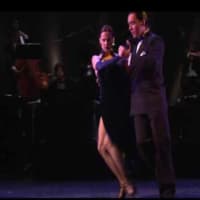

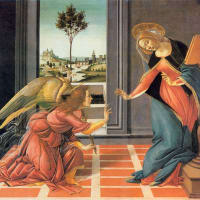

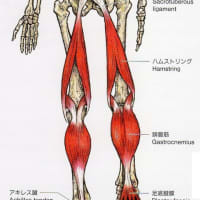
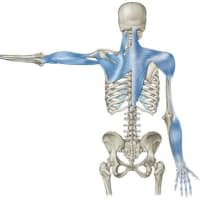
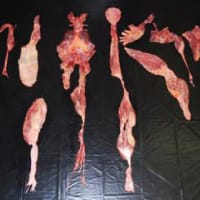
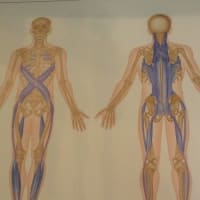
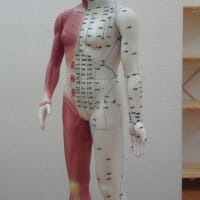
※コメント投稿者のブログIDはブログ作成者のみに通知されます